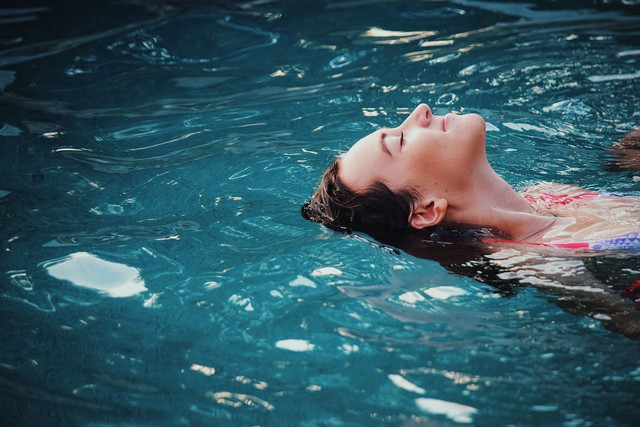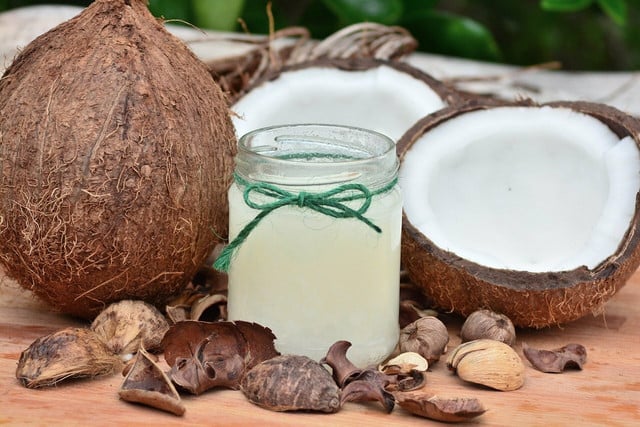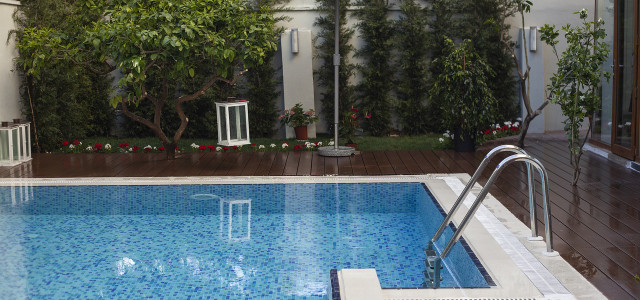Frequent exposure to chlorine is bad for your hair and skin, but there are ways to limit the effects. We’ll give you some tips to help to reduce chlorine damage.
Chlorine is a chemical used in swimming pools to disinfect the water, and is also used to disinfect drinking water. Other places you encounter chlorine include in the sanitation process for industrial waste and sewage. Swimming pools are the places where chlorine is most likely to damage our skin and hair. You may be spending more time in swimming pools as we come into the summer months, so we will give you some tips to protect you hair and skin from chlorine exposure.
Is Chlorine Bad For Your Hair and Skin?

(Foto: CC0 / Pixabay / Pexels)
Tap water contains chlorine, although the levels are too low for it to negatively affect your hair and skin too much. Swimming pools, on the other hand, have much higher levels of chlorine, which can be damaging to your hair and skin. Chlorine can strip the hair and skin of its natural oils, which leaves it feeling dry. Chlorine can also make your hair brittle and weak, and this can lead to split ends. On the skin, this can cause irritation and itchiness.
To avoid swimming in chlorine and other chemicals, you should try cold water swimming.
Tips to Prevent Chlorine Damage



(Foto: CC0 / Pixabay / moho01)
Those who have thin or fine, dry or damaged, or bleached, coloured, or chemically treated hair are more at risk from getting further damage caused by chlorine. Some tips for protecting your skin and hair from water damage include:
- Rinse and wet your hair before and after swimming in a chlorinated pool. By wetting your hair before you get in the pool, your hair will absorb the shower water meaning it will absorb less of the chlorinated pool water. Rinse your hair immediately after swimming in order to remove any chlorine traces from your hair.
- If you are swimming in a chlorinated swimming pool, wear a swimming cap to prevent your hair from getting too wet. This will reduce exposure to chlorine on your hair.
- Use a hair mask once or twice a week to deeply moisturise your hair. There are many natural hair masks you can use, including coconut oil, shea butter and olive oil. These natural oils can work as a barrier layer for your hair to protect it from chlorine.
- Moisturize your skin after being in chlorinated water to prevent your skin from getting too dry. Try this homemade face moisturizer for dry skin or an all-natural lotion. There are many other ways that you can soothe dry skin naturally.
Read more:
- What to Do on a Hot Day: 11 Eco-Friendly Activities
- Sustainable Swimwear: 10 Ethical Bathing Suit Brands
- How to Beat the Heat: 6 Tips for Keeping Cool this Summer
Important Information regarding Health-related Topics.
** Links to retailers marked with ** or underlined orange are partially partner links: If you buy here, you actively support Utopia.org, because we will receive a small part of the sales proceeds. More info.Do you like this post?






